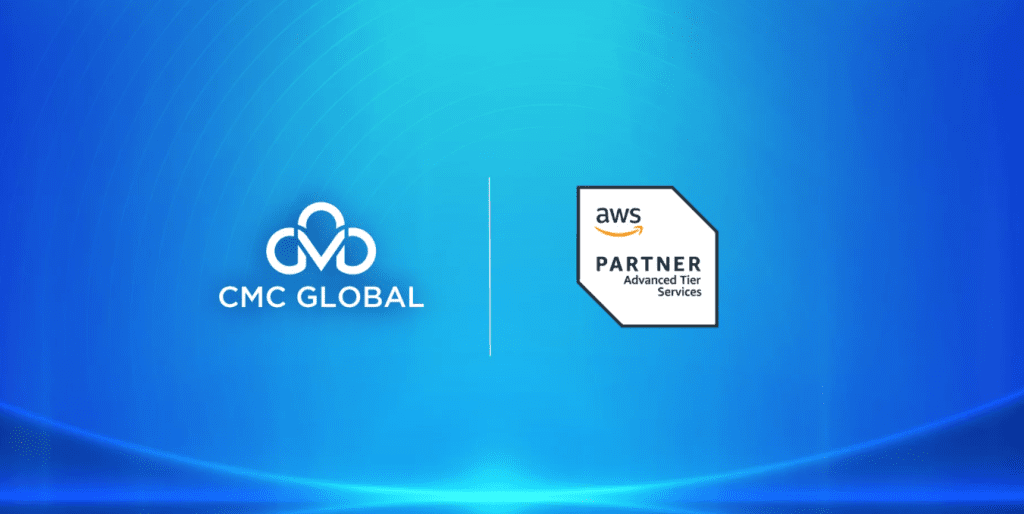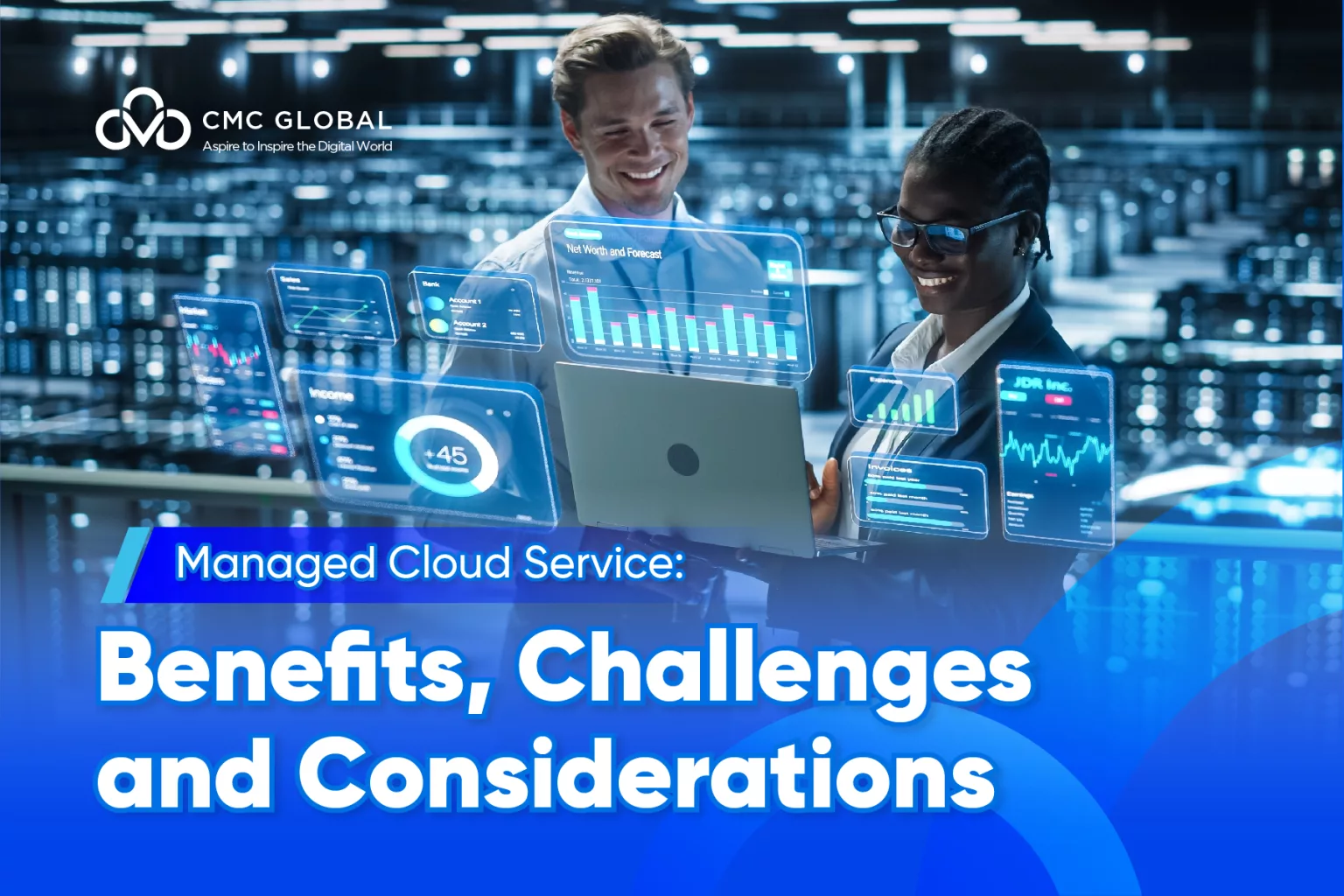What are Managed Cloud Services?
Managed cloud services, provided by third-party experts, assist businesses in overseeing their cloud infrastructure. Think of them as your dedicated IT guardians, operating behind the scenes to keep your digital environment running smoothly. These services include server management, data backup, security, and monitoring, enabling you to concentrate on the essential areas of your business.
What Do Managed Cloud Services Include?
Managed cloud services offer a comprehensive range of solutions, such as server management, security, monitoring, and troubleshooting. Let’s look into some of these services:
- Cloud Deployment: Assists businesses in designing, managing, and deploying applications on their cloud infrastructure.
- Backup and Disaster Recovery: Safeguards against data loss in the event of a disaster or application data issues.
- Security: Protects the cloud infrastructure from cyber threats by adhering to industry compliance standards.
- Monitoring: Continuously oversees the cloud infrastructure for performance issues, with some providers offering automated alerts to notify your IT or engineering team if an application fails.
- Reporting: Delivers regular reports on cloud infrastructure performance and usage, including detailed breakdowns of various services used.
When Should I Use a Managed Cloud Service?

There are many reasons to use managed cloud services. Below are some key ones:
- Data-Intensive Analytics: Handling massive datasets requires substantial computing power and storage. Managed cloud services, especially IaaS and STaaS, can meet these demands while securely storing large volumes of data.
- Start-Up Cost Optimization: For tech startups with limited initial capital, MCS offers a cost-effective solution. Instead of investing in on-premise infrastructure, startups can take advantage of the pay-as-you-go model provided by cloud services, which is particularly useful as your MVP scales.
- IoT and Home Automation: Managed cloud services support edge computing, which is excellent for processing and analyzing data locally. This reduces latency, enhances real-time decision-making, and eases the burden on central cloud resources.
Benefits of Managed Cloud Service
Opting for Managed Cloud Services (MCS) offers numerous advantages such as:
1. Cost Savings: Reduce infrastructure management costs by optimizing cloud resources and paying only for what you use.
2. Flexibility and Scalability: Easily scale cloud infrastructure up or down as needed.
3. Improved Security: Benefit from experienced security professionals protecting against cyber threats.
4. Reduced IT Burden: Outsource cloud management to free up your IT team for more critical tasks.
Types of Managed Cloud Services

Managed cloud services come in various forms to meet the diverse needs of businesses. Types of managed cloud services include:
Infrastructure as a Service (IaaS)
IaaS provides virtualized computing resources such as servers, storage, and networking components. It allows organizations to build and manage their cloud-based centers, maintaining significant control over their infrastructure. Just like a house needs a solid foundation, sturdy walls, and a reliable roof, IaaS offers the essential elements for your virtual environment.
Platform as a Service (PaaS)
PaaS comes with preconfigured tools and services for application development, testing, and deployment, abstracting the complexities of the underlying infrastructure. This allows developers to focus on coding without worrying about infrastructure, creating a seamless and efficient development experience.
Database as a Service (DBaaS)
DBaaS enables users to deploy, operate, and scale databases without managing the underlying infrastructure. It includes database creation, configuration, maintenance, backup, and security in a fully managed environment.
Software as a Service (SaaS)
SaaS delivers ready-to-use applications over the Internet, eliminating the need for local installations. This model is ideal for providing software to a non-technical audience, whether it’s collaboration tools, customer relationship management (CRM) systems, or office suites.
Storage as a Service (STaaS)
STaaS offers on-demand storage resources, abstracting the physical storage infrastructure and providing a scalable, pay-as-you-go model. It typically includes features like data replication, encryption, and backup.
Challenges of Managed Cloud Services
While MCS offers many benefits, they also present several challenges, including:
- Security Concerns: Despite strong security measures by MCSPs, businesses must ensure their data is adequately protected.
- Vendor Lock-In: Some cloud providers make switching difficult. To avoid this, it’s advisable to use a multicloud strategy and multiple providers simultaneously.
- Compliance Challenges: Meeting industry-specific compliance requirements in the cloud can be difficult for some businesses.
- Cost: Although managed cloud services simplify cloud management, they can be expensive. However, most major providers offer pay-as-you-go options to help manage costs.
Considerations for Choosing a Managed Cloud Service Provider

Selecting the right MCSP is crucial for effectively building, managing, and deploying applications. Here are some key factors to consider:
Service Offerings and Capabilities
– Scalability: Make sure the provider can adjust resources as your needs grow.
– Service Catalog: Evaluate the variety of services available, including IaaS, PaaS, SaaS, and specialized solutions.
– Global Reach: Check the provider’s data center locations to ensure they cover all regions where your business operates.
Reliability and Performance
– Service Level Agreements (SLAs): Review SLAs for uptime guarantees, performance standards, and support response times.
– Redundancy: Confirm that the provider has strong backup and disaster recovery plans.
– Network Performance: Look into the provider’s network infrastructure to ensure low latency and high bandwidth.
Security and Compliance
– Data Encryption: Ensure data is encrypted both during transmission and at rest.
– Compliance Certifications: Verify that the provider meets relevant industry-specific compliance standards such as HIPAA, GDPR, and SOC 2.
– Identity and Access Management (IAM): Check the IAM features to manage user access and permissions.
Cost Structure and Transparency
– Pricing Model: Understand the provider’s pricing structure, whether it’s pay-as-you-go, reserved instances, or a mix.
– Hidden Costs: Identify any hidden fees, such as data transfer charges or costs for additional services.
– Billing Transparency: Look for clear and straightforward billing practices to avoid unexpected charges.
Support and Service Level Agreements (SLAs)
– Support Options: Evaluate the available support plans, including 24/7 support, technical assistance, and account management.
– SLA Commitments: Examine SLAs for guaranteed response times, resolution times, and compensation for service disruptions.
Data Management and Migration
– Data Transfer Options: Assess how easily you can transfer data into and out of the cloud.
– Data Backup and Recovery: Verify the provider’s backup and recovery capabilities, including data retention policies.
Consider Digital Transformation Consulting?
As more companies start the next wave of digital transformation, navigating the landscape of implementing emerging technologies can pose a challenge. This is where the benefits of seeking guidance from experts through consulting services become evident.
Collaborating with experienced consultants allows businesses to fully realize the advantages of cloud computing, steering clear of common pitfalls and establishing a foundation for future success.
An AWS Advanced Tier Services Provider, such as CMC Global, plays a crucial role in evaluating readiness, offering technology recommendations, addressing potential risks, and ensuring a smooth implementation of cloud solutions. This, in turn, empowers businesses to unlock the complete potential of this transformative technology.

The CMC Global team is available to assist with:
- Assessing business needs and readiness
- Developing customized roadmaps
- Evaluating and recommending technologies
- Formulating data strategies and preparation
- Providing guidance on team building and resources
- Assessing and mitigating risks
- Establishing governance and compliance standards
- Continuously evaluating and improving processes.
Contact us now for further consultation!




